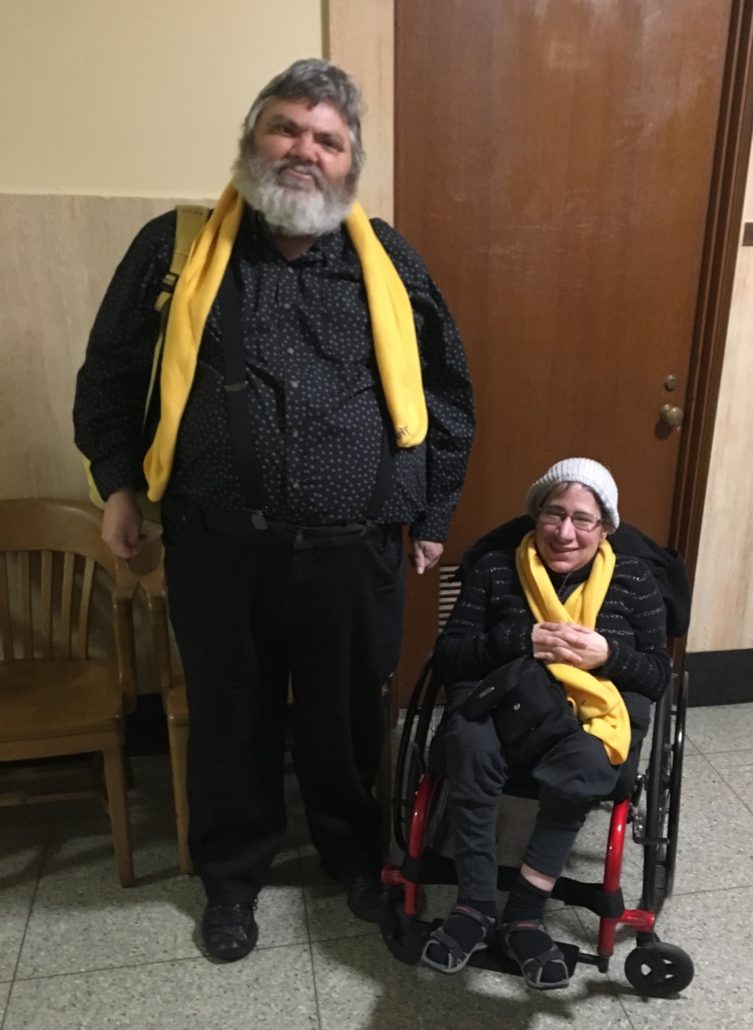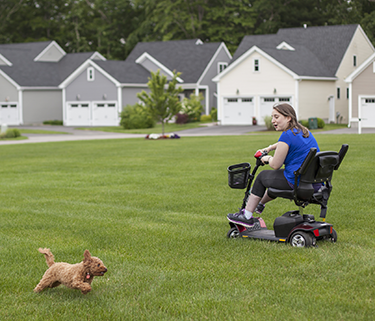Vaccine Discrimination: Disability Advocacy Groups File Federal Lawsuit Alleging 6 Maryland Jurisdictions Discriminate in Vaccine Process
Today, The Arc Maryland, represented by Disability Rights Maryland, The Arc of the United States, and Brown & Barron, LLC filed a federal lawsuit alleging that six jurisdictions in Maryland, including Baltimore City, discriminate against people with intellectual and developmental disabilities (IDD) by denying them opportunities to access COVID-19 vaccinations inconsistent with the State’s Executive order and Vaccination Plan. This discrimination puts lives at stake and violates the Americans with Disabilities Act and Section 504 of the Rehabilitation Act.
Five counties and Baltimore City are identified in the lawsuit as excluding individuals with IDD in their list of who is eligible, preventing those with IDD from accessing vaccinations. The counties include, Queen Anne’s County, Carroll County, Garrett County, Somerset County, and Talbot County.
Ivis Burris has muscular dystrophy and requires support staff to come to her apartment to assist her with nursing needs. She lives in Baltimore City with her adult son who has Down syndrome. Under the state Vaccination Plan, they are both eligible for the vaccine under Phase 1B as individuals with IDD. But when Ms. Burris went to the Baltimore City COVID-19 website, she thought she wasn’t eligible to request the vaccine for herself and her son because the City excludes people with IDD from its list of those eligible for Phase 1B. Ms. Burris explains, “I want a fair chance like everybody else to live. My son deserves a fair chance to live. Considering our situation – I need a ventilator to breathe and my son is at higher risk because of his Down syndrome – it is really critical that we get the vaccine. Our disabilities put us at higher risk.”
“It is frustrating to have our state recognize people with IDD to be the 1B priority group for the vaccine, only for people with IDD to be denied equitable access to the vaccine from the counties in which they live. We hope this action will result in immediate change for the benefit of all,” said Ray Marshall, board president of The Arc Maryland.
It is well established that COVID-19-related fatality rates among people with IDD who test positive for COVID-19 are nearly three times greater than the mortality rates among the general population who are positive for the virus. People with IDD also face heightened risk because many rely on caregivers or direct support professionals who provide assistance with activities of daily living, for which social distancing is often not possible. Frequently, such caregivers serve multiple people raising risks of transmission. Despite advocacy from The Arc Maryland, people with IDD are not getting equal access to vaccines, compelling the need for the lawsuit.
“We need these localities to take immediate corrective action to fix their information; to fix forms that exclude individuals with disabilities from claiming eligibility and seeking vaccine appointments; to tell health department staff and others that people with disabilities are eligible and to assist them with obtaining the vaccine. The Americans with Disabilities Act was passed over thirty years ago with a purpose of ending historic inequities in health care. We need immediate action to protect lives,” said Lauren Young, Litigation Director for Disability Rights Maryland.
“Throughout this pandemic, The Arc has fought to ensure that people with disabilities nationwide have equal access to treatment and are not subject to medical discrimination,” said Peter Berns, CEO for The Arc of the United States. “As vaccines are distributed around the country, we will remain vigilant to ensure people with IDD are not discriminated against in this process.”
“Ensuring that vulnerable populations have access to life-saving vaccines, and that the State’s distribution plan prioritizing these populations is followed, is in accordance with Brown & Barron’s core principles and values of promoting access to quality healthcare for all. We are proud to stand behind The Arc in supporting these individuals and communities at this crucial time,” said Brian Brown, managing member of Brown & Barron, LLC.”
The Arc of the United States is the largest grassroots organization dedicated to advancing the civil rights of people with intellectual and developmental disabilities. The Arc Maryland is an affiliate of The Arc of the United States. There are 11 chapters of The Arc throughout the state, including The Arc Maryland.
Disability Rights Maryland (DRM), a non-profit 501(c)(3) organization, is Maryland’s designated Protection & Advocacy agency. DRM advocates to advance the civil rights of people with disabilities throughout Maryland.
Brown & Barron, LLC is a civil justice law firm in Baltimore, Maryland.














